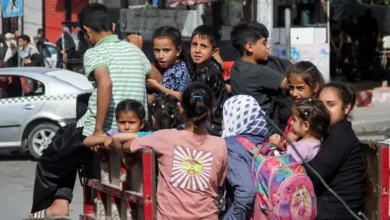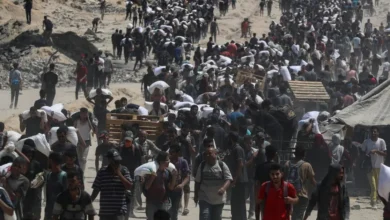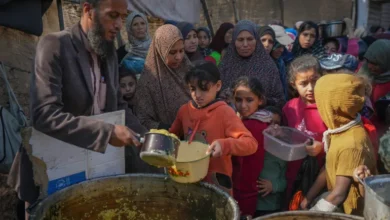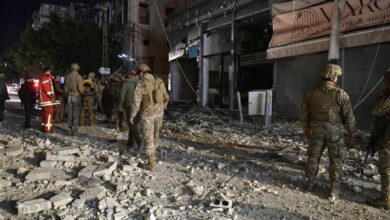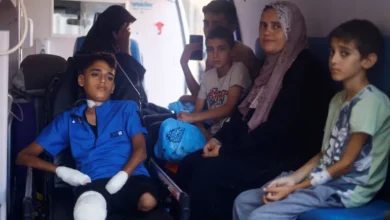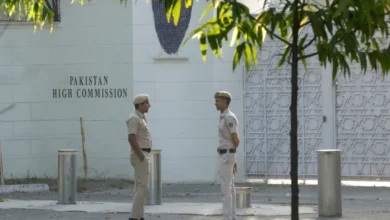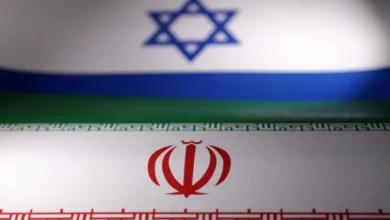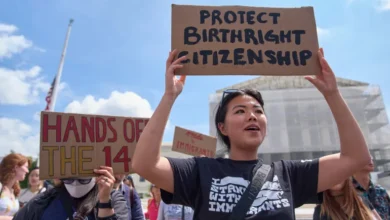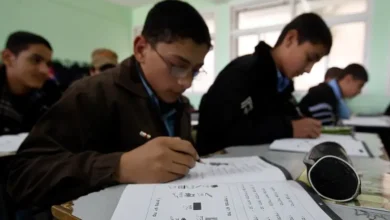To be a Palestinian child, trying to survive Israeli jail
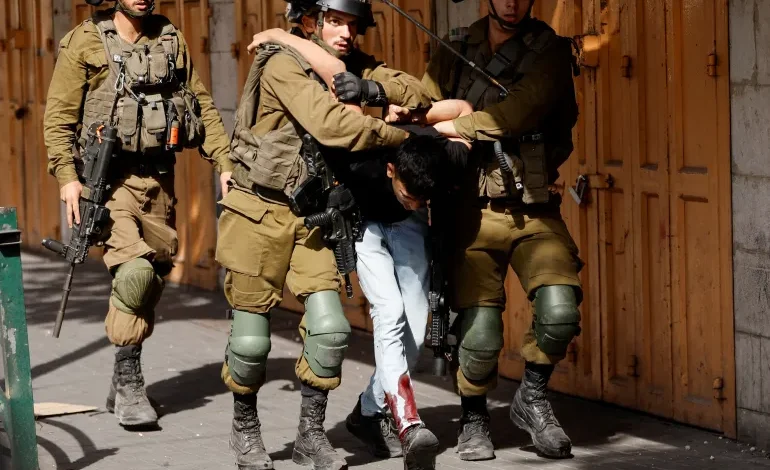
For 10 long months, 16-year-old Hussein* lived in the same clothes he was wearing when he was detained on October 3.
His trousers were still bloodstained when he was released.
On October 3, he was shot in the right thigh by Israeli forces in a watchtower near the occupied West Bank city of Hebron.
Hussein fell to the ground and saw two Israeli soldiers walking towards him. They beat him, kicking him in the head until he lost consciousness.
He woke up three days later in a hospital, only to realise he had undergone surgery and was about to be taken to Ofer Prison.
That was only days before Israel unleashed its continuing assault on Gaza and the last time he received any medical attention in detention.
Can’t walk
Hussein is one of hundreds of children Israel has detained over the years, a number that has multiplied dramatically since Israel began its assault on Gaza on October 7 and intensified its daily raids and mass arrest campaigns in the West Bank.
He used to love going to the gym, challenging himself to lift more. He also loved playing football with his friends.
Now, he limps, needs crutches to walk, and spends most of his day lying on a mattress.
He will require joint implant surgery once he is done growing at the age of 18.
More than 700 arrests of children have been documented by the Palestinian Prisoner’s Society since October 7. Currently, 250 of them remain in Israeli detention.
“This number, especially compared to previous periods, is very high,” said Amani Sarahneh, spokesperson for the Palestinian Prisoner’s Society.
Sarahneh added that children are abused and tortured the same way adult Palestinian prisoners are.
“A Palestinian child will likely experience every abuse tactic you can think of,” she said, adding that Israeli forces have used them on Palestinian children for many years.
Palestinian detainees are beaten, exposed to the cold for prolonged periods, and deprived of food, sleep, water and medical attention, a report by the UN Human Rights Office last month revealed.
‘Just enough to keep us alive’
When Wassim left detention, he had vitamin, iron and calcium deficiencies.
“The prison was … unlivable,” he said.
“I would ask for medical treatment every single day, but … no doctors showed up, they didn’t even exist [in the prison],” Wassim said.
Food rations were also largely inadequate: Hussein said that he and the nine other prisoners in his cell would receive food in “a tiny plastic cup”.
“It was just enough to keep us alive,” he said.
“Most days, it was white rice … sometimes, it was undercooked. We’d eat, be full for five minutes, and then continue the rest of the day as if we were fasting.
“We’d be begging for water, and end up drinking contaminated water from the bathroom. We had to … we had no choice,” he recalled.
Israeli prison authorities shut down the canteen where prisoners could buy food and basic supplies and removed electrical devices including hotplates and kettles.
Hussein’s father Omar* said he was worried sick about his son, especially after October 7.
“After the war on Gaza, when we heard how bad things had gotten for Palestinians in Israeli jails, we were devastated,” Omar told Al Jazeera.
“We cried … day and night,” he recalled.
